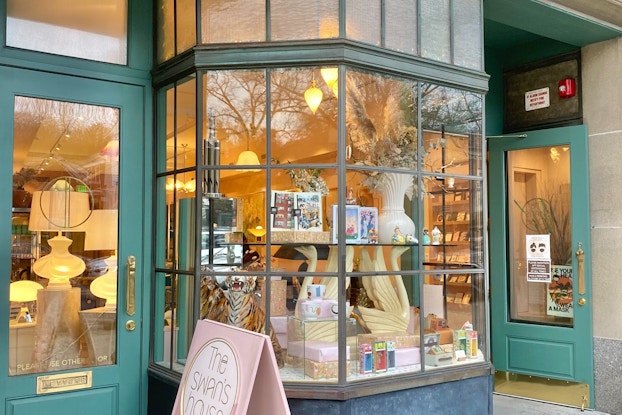It's business as unusual as executives wonder and worry about product deliveries arriving in time to meet daily customer demand and holiday sales forecasts. Supply chain disruptions triggered by the pandemic have shown no sign of abating and are creating unprecedented uncertainties and rising costs, including a 43% increase in road and rail shipping costs and significant FedEx surcharges on packages. These five business owners agree that navigating our new reality requires forethought, strong vendor relationships and a lot of creativity.

Henry Tushar, director of operations, Socksmith Design Inc.
Who we are: Uniquely tailored socks designed in Santa Cruz, CA with love and a commitment to self-expression.
We have experienced delays in securing container space on shipping boats for our goods, due to high demand and lack of availability. We have also experienced significant delays in the time that it takes to get products out of ports once they have made it to the U.S. In most instances, these delays have been two to six weeks longer than they were pre-pandemic. We anticipated these delays, so we placed purchase orders with our manufacturing partners much earlier than we ever have before. The goods still arrived late, but still well within the window that we promised to our retail partners.
Knowing there were going to be supply chain disruptions, we ordered earlier and bought deeper — especially in key styles. We have also been communicative with our customers to let them know that they wait until the last minute to place their holiday orders with us, as our primary shipping partner had already forewarned us about delays they were anticipating during the upcoming holiday season.
The truth of the matter is that even though the supply chain is the slowest it has been in the 40 years I have been in the business, we have mitigated the impact by being proactive with both the timing and quantities of our orders. Although we are still experiencing delays, they are not as significant as they would have been if we had ordered in our 'normal' cycle and quantities. Follow Socksmith Design Inc. on LinkedIn, Instagram & Facebook.

Sara Swan, owner, The Swan’s House
Who we are: A specialty retailer offering a curated selection of vintage and contemporary furniture, home decor and gifts in Tarrytown, NY.
My husband and I opened our first store on October 9, 2019, and five months later, our doors were shut because of the pandemic. We had both given up our careers for this: he was the owner of a set-building company, and I was a fashion designer. All our eggs were in this one basket, and we knew that we had to hustle our hearts out to keep our business afloat. That’s exactly what we did.
Competing against the likes of Amazon was not an option, so we knew we had to offer unique products. We had already accumulated a huge back stock of fantastic vintage pieces with the intention of using them throughout the year. Instead, we tapped into those right away, and the positive response was immediate. People working from home realized the importance of a great desk, a comfortable chair, and pieces that they enjoyed looking at all day — and that’s where we came in. We offered competitive pricing and fast, free doorstep delivery, which was something that big-box retailers had no way of doing. We weren’t waiting for supply chains to catch up because our one-of-a-kind vintage furniture pieces were ready to go. We also created small discounted bundles of unique and timely pieces, such as mugs, slippers, books and cards, then marketed them as “sanity sets.” These also shipped fast and free to local customers. We pushed our message and shared every step of our journey on Instagram, and our following grew from 2k to 50k within a year.
In general, we’ve been able to avoid most of the supply chain issues because the vast majority of our inventory is vintage, but we did have delays with receiving some of our gift items last year. The products that we ordered from small independent designers were the hardest hit because of designers’ material and staff shortages, rising material costs and shipping delays. This year we have been forecasting trends much earlier and have placed orders more than six months in advance. We’re also going to offer our gift items earlier this year in an attempt to avoid the holiday season shipping issues that we faced last year. Follow The Swan’s House on Instagram & Facebook.

Marci Blum and Tara Swanson, owners, Just Because Treats
Who we are: An e-commerce care package business based in Lafayette Hill, PA that specializes in sending incredible treats to college campuses.
A gummy shortage, of all things? It’s hard to believe, but gummies are in short supply. Many of our candy suppliers are simply unable to deliver products in time for the fall and winter holidays. Product costs have increased as supplies become harder to get. In addition, shipping costs and shipping materials have increased.
We have already started to get our candy for the winter holidays. By ordering as early as possible, we can design our holiday line around the candies we have in stock. We now create seasonal candy mixes that focus on color with just some of the seasonally shaped candies. These are fun and unique to our business. Our customers seem to really like the holiday mixes!
Our customers have been incredible. They allow us to make substitutions when necessary and seem to embrace our creativity in creating holiday-themed care packages. Our business is about sending smiles across the miles. Despite the candy supply chain disruptions, our packages are filled with tons of candy and treats! Follow Just Because Treats on Instagram & Facebook.

Valerie Wray, founder and CEO, 125 Collection
Who we are: New York City-based relatable luxury quote candles created to empower, inspire and entertain.
In terms of supply chain challenges, there have definitely been some bumps with COVID-19. I started feeling it in January of 2021 right after the holidays, particularly with raw materials like wax, wicks and glass. That's the scary part of having a candle business — if I don’t have the glass, I don’t have a business. I had to reach out to different glass manufacturers, some of which were going out of business or going bankrupt, and it trickled down to everyone in the industry.
Anticipating the shortage, I ordered a huge amount of inventory, knowing that was all the manufacturers could sell me for the year. That meant figuring out how to finance a huge order with large quantities, which impacted both my personal and professional finances. When the full-year order arrived, I discovered that the glass was poorly sprayed due to the manufacturer having to outsource the glass. Unfortunately, I couldn’t use any of it. I reached out to the manufacturer and they were kind, but said they had nothing to replace it with until January — so I had to think “out of the glass.”
My brand is luxurious and relatable, so for the holidays, I had to find alternate glamorous vessels for the candles. I was able to find beautiful and glamorous tins, and I am now shifting a little bit. I am also going to launch body care, a natural extension. This new product was originally meant to be ancillary but now will become a primary part of the business to supplement the collection.
Ultimately, for the holidays, I think I will still be able to come out with the same inventory that I was expecting, but through a more holistic business approach and a brand extension beyond just candles. Follow 125 Collection on Instagram & Facebook.

Frank Bittner, owner, Minuteman Press of Cherry Hill
Who we are: A family-owned-and-operated print and copy center in the Cherry Hill, NJ area, in business for the past 30 years.
With regards to the printing business, I have experienced some supply chain disruptions firsthand. Currently, there is a shortage of paper as well as supplies for my digital printing presses. For the past couple of months, the inventory of some paper brands has been completely depleted, with no resupply in sight. We have been forced to utilize other brands without knowing whether our preferred brands will be replenished in the future. One positive aspect of the shortage is that we have been able to sell some of our older inventory to customers who don’t have a brand preference.
Our digital presses are made in Japan. Likewise, much of the parts and supplies, like toner, come from overseas. With the high demand for international shipping, our suppliers are finding it hard to keep their domestic inventory stocked. Items that would normally take a week to arrive are now taking sometimes three to four weeks.
With the anticipation of limited paper and supply inventories, we have stocked up on as much inventory as we can afford. Limited space in my shop has made this a challenge. We have also tried to make our customers aware of the situation so they are not in shock when their orders take a little longer to complete. We have noticed many of them are actually placing larger quantity orders by projecting what they will need for the next year, instead of only for the next few months. Follow Minuteman Press of Cherry Hill on Facebook.
CO— aims to bring you inspiration from leading respected experts. However, before making any business decision, you should consult a professional who can advise you based on your individual situation.
Follow us on Instagram for more expert tips & business owners’ stories.
CO—is committed to helping you start, run and grow your small business. Learn more about the benefits of small business membership in the U.S. Chamber of Commerce, here.








